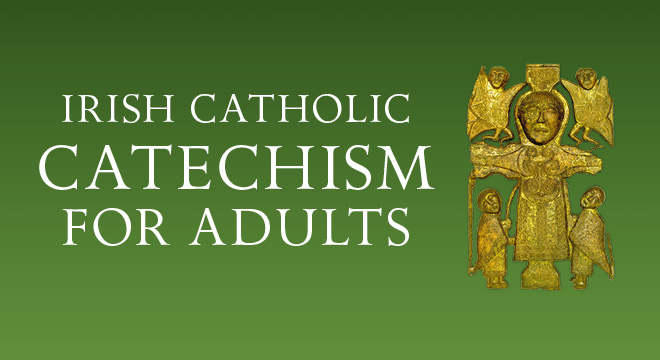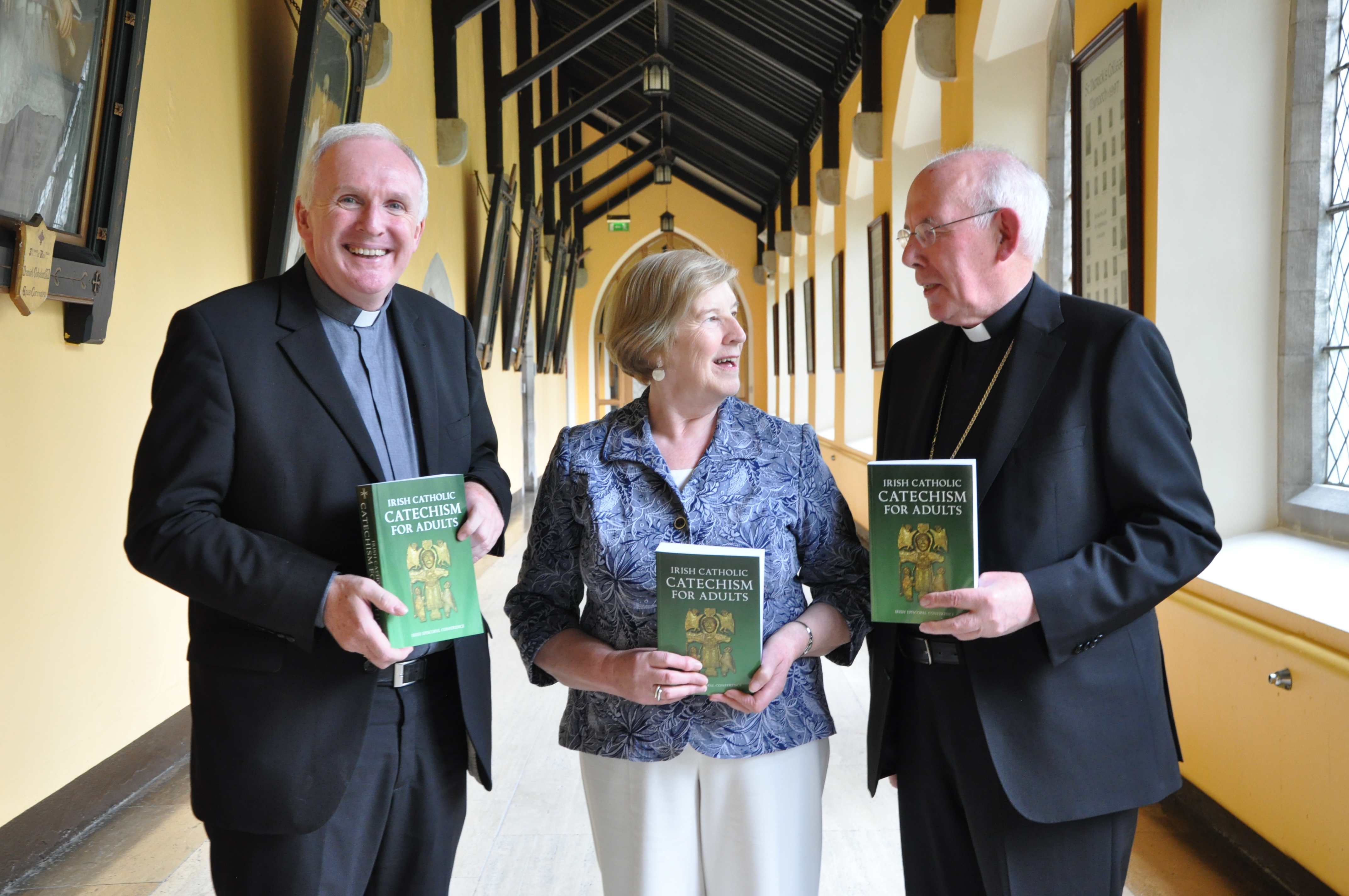
The Irish Catholic Catechism for Adults was launched by Cardinal Seán Brady on Monday 9 June in Maynooth.
The Irish Catholic Catechism for Adults is a new resource from the Irish Episcopal Conference. Designed to complement the Catechism of the Catholic Church, it is adapted for an Irish audience and written in accessible, easy-to-understand language. The Adult Catechism responds to the proposal made by the Irish National Directory for Catechesis, Share the Good News, that adult faith development should be given priority at this time.
The Irish Catholic Catechism for Adults presents Irish Catholics with a renewed opportunity to study, reflect on and live by the faith we profess in the Creed, celebrate in the Sacraments, live in the Christian moral life and deepen through prayer. Each chapter begins with a ‘Story or Lesson of Faith’, featuring many notable figures from Ireland, such as Edmund Rice, Catherine McAuley and Nano Nagle. These stories and lessons present the richness of the Church’s teaching within the Irish cultural context.
Who is the Catechism for?
This catechism is for adults who wish to renew or learn more about their faith, including:
– Parish Study Groups
– Retreat Groups
– Liturgy Committees
– RCIA Groups
– Those interested in personal study.
It also provides information about the Catholic faith to other interested readers.
How is the Irish Catholic Catechism for Adults structured?
The Irish Catholic Catechism for Adults is composed of thirty-six chapters, divided into four sections:
I. The Creed: The Faith Professed
II. The Sacraments: The Faith Celebrated
III. Christian Morality: The Faith Lived
IV. The Our Father: The Faith Prayed.
Each chapter:
– Commences with a short account of a saint or holy person, most of whom are Irish
– Is followed by a presentation of a related teaching
– Contains excerpts from the Catechism of the Catholic Church
– Relates the Church teaching to Irish culture
– Contains questions for discussion that invite the reader to explore personal ways of connecting with the teachings of the Church
– Concludes with doctrinal statements and suggestions for meditation and prayer.




You must be logged in to post a comment.